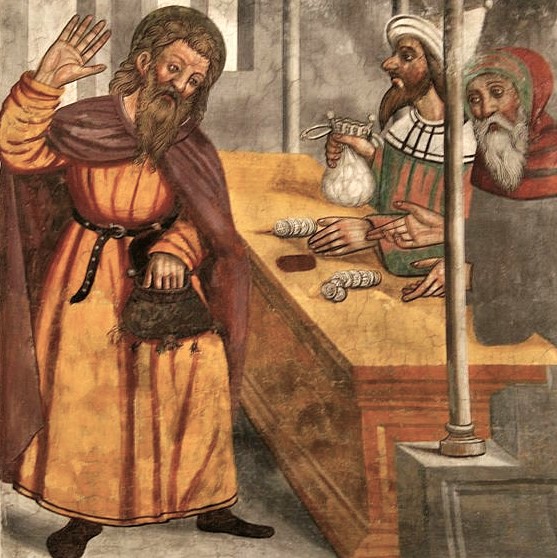Quotes for a Wednesday in Holy Week
Faith is not philosophy, in other words. It is not something on which we reflect, but rather Someone we receive, and upon whom we are blessedly free to repose the whole weight of our understanding and trust. “It is not a matter of learning and cleverness,” Hans Urs von Balthasar advises, “but the courage to put oneself at risk.” - Regis Martin
(Aquinas says), “Actus autem credentis non terminatur ad enuntiabile sed ad rem” [The believer’s act (of faith) does not terminate in the propositions, but in the realities [which they express].” While it is true to say that the ultimate term of faith is not a set of theological formulas that we confess, but rather God himself, it is also the case that for Aquinas articles of faith are necessary for knowing God. Aquinas explains: “We do not form statements except so that we may have apprehension of things through them. As it is in knowledge, so also in faith.” In other words, one knows primarily God Himself but as mediated in and through determinate propositions. - Eduardo J. Echeverria
A full Biblical account of faith involves knowledge (notitia), assent (assensus), and trust (fiducia). Indeed, normatively speaking, these are three elements of a single act of faith involving the whole person who commits himself to God in Christ and through the power of the Holy Spirit. Minimally, however, faith involves belief, and to have a belief means that one is intellectually committed to the whole truth that God has revealed. - ibid.
Christianity, unlike any other religion in the world, begins with catastrophe and defeat. Sunshine religions and psychological inspirations collapse in calamity and wither in adversity. But the Life of the Founder of Christianity, having begun with the Cross, ends with the empty tomb and victory. - The Venerable Fulton J. Sheen, Life of Christ
III. THE KNOWLEDGE OF GOD ACCORDING TO THE CHURCH
36 "Our holy mother, the Church, holds and teaches that God, the first principle and last end of all things, can be known with certainty from the created world by the natural light of human reason."11 Without this capacity, man would not be able to welcome God's revelation. Man has this capacity because he is created "in the image of God".12
37 In the historical conditions in which he finds himself, however, man experiences many difficulties in coming to know God by the light of reason alone:
Though human reason is, strictly speaking, truly capable by its own natural power and light of attaining to a true and certain knowledge of the one personal God, who watches over and controls the world by his providence, and of the natural law written in our hearts by the Creator; yet there are many obstacles which prevent reason from the effective and fruitful use of this inborn faculty. For the truths that concern the relations between God and man wholly transcend the visible order of things, and, if they are translated into human action and influence it, they call for self-surrender and abnegation. The human mind, in its turn, is hampered in the attaining of such truths, not only by the impact of the senses and the imagination, but also by disordered appetites which are the consequences of original sin. So it happens that men in such matters easily persuade themselves that what they would not like to be true is false or at least doubtful.13
38 This is why man stands in need of being enlightened by God's revelation, not only about those things that exceed his understanding, but also "about those religious and moral truths which of themselves are not beyond the grasp of human reason, so that even in the present condition of the human race, they can be known by all men with ease, with firm certainty and with no admixture of error". 14 - CCC
Far better it is for you to say: "I am a sinner," than to say: "I have no need of religion." The empty can be filled, but the self-intoxicated have no room for God. - The Venerable Fulton J. Sheen, Seven Words of Jesus and Mary: Lessons from Cana and Calvary
601 The Scriptures had foretold this divine plan of salvation through the putting to death of "the righteous one, my Servant" as a mystery of universal redemption, that is, as the ransom that would free men from the slavery of sin.397 Citing a confession of faith that he himself had "received", St. Paul professes that "Christ died for our sins in accordance with the scriptures."398 In particular Jesus' redemptive death fulfills Isaiah's prophecy of the suffering Servant.399 Indeed Jesus himself explained the meaning of his life and death in the light of God's suffering Servant.400 After his Resurrection he gave this interpretation of the Scriptures to the disciples at Emmaus, and then to the apostles.401 - CCC
Unless there is a Good Friday in your life, there can be no Easter Sunday. - The Venerable Fulton J. Sheen







Comments
Post a Comment
Your comments will be appreciated and posted if 1) they are on topic and 2) preserve decorum.
Stand by your word.